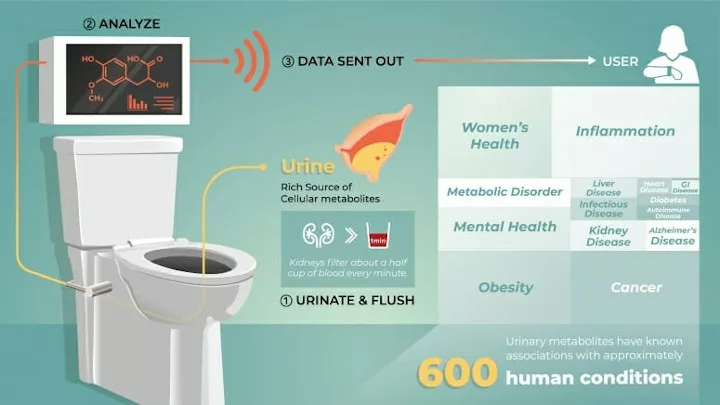While the pilot experiment didn’t examine health questions, the researchers say many possibilities exist. For example, testing could show how an individual metabolizes certain types of prescription drugs in ways that could be healthy or dangerous. Also, as the population ages and pursues more stay-at-home care, urine tests would indicate whether people are taking their medications properly and if those medications are having their intended effects.
Coon also believes the smart toilet concept could have major population health implications, not unlike the National Institutes of Health “All of Us” human genome database. “If you had tens of thousands of users and you could correlate that data with health and lifestyle, you could then start to have real diagnostic capabilities,” he says, adding that it might provide early warning of viral or bacterial outbreaks.
Coon, who runs the National Center for Quantitative Biology of Complex Systems, says the idea of meta-scale urine testing has intrigued him for some time. “Josh mentioned this at a group meeting one time and it was met with laughter,” Miller recalls. “I thought, you know, I kind of like the idea. I already track a lot this stuff in my everyday life.”
Adds Coon: “So we went out and bought a couple coolers and started collecting.”
While the mass spectrometer small molecule analyses are being done on $300,000 machines, Coon says portable mass spectrometer technologies exist at a tenth of that cost. He says that with a market this massive, they could eventually hit a reasonable cost threshold.
“Almost every automobile on the road is more complicated than that portable mass spectrometer,” he says.



